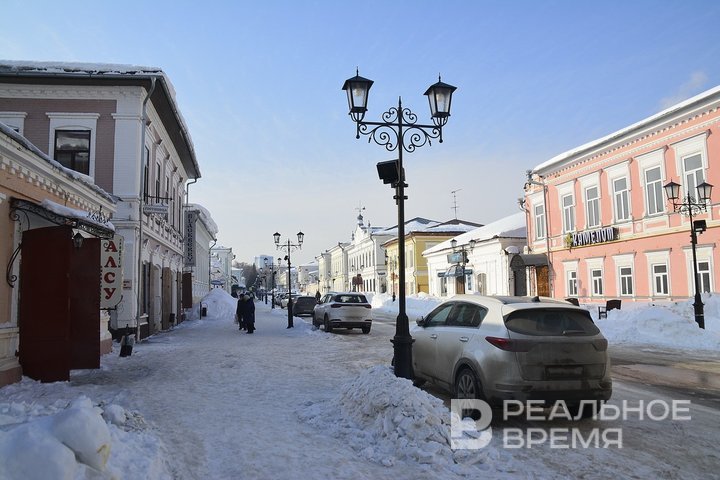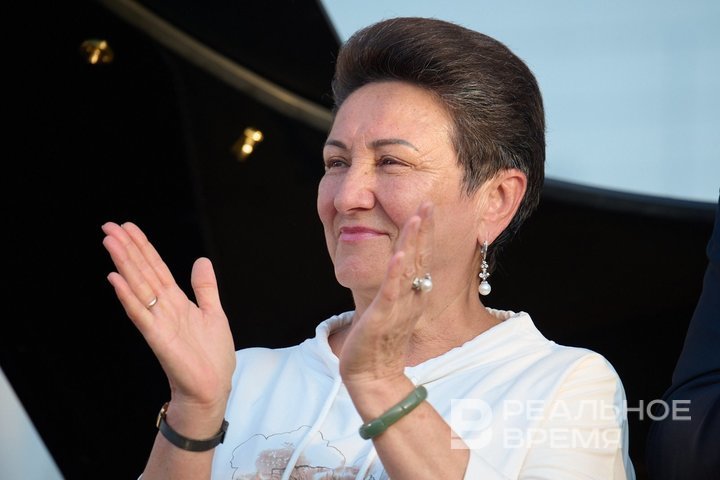Why Yelabuga decided not to introduce a tourist tax
The fee was introduced only in Kazan, Bolgar, Sviyazhsk, Chistopol and three other municipalities of Tatarstan.

Since January of this year, Tatarstan has introduced a tourist tax in locations popular with guests of the republic. The introduction of the fee was approved in 7 municipalities, including Kazan, Bolgar, Sviyazhsk, Chistopol, where a steady flow of up to 2.5 million tourists per year has long been established. Yelabuga stands apart from them, attracting up to 1 million guests annually. Why the authorities of the historical destination changed their minds at the last moment to tax visitors at 1% of the cost of hotel accommodation and what hoteliers are dissatisfied with — in the material of Realnoe Vremya.
Supporters and opponents of the tourist tax
The new tourist tax, which has been introduced throughout the country, has split the municipalities of the republic into two camps. Those who supported it, along with local authorities, immediately introduced it on their territory starting January 1, 2025, while those who opposed it — uncertain parties— simply chose not to introduce it, postponing it until “better times.”
In their own way, both are right — the tourist tax of 1% of the cost of staying in hotels is introduced solely by decision of local authorities, it cannot be imposed “from above”. The attraction of the collection is that 100% of the proceeds are credited to the local treasury.

Seven municipalities of Tatarstan have introduced a tax on their territory, the press service of the State Committee for Tourism of the Republic of Tatarstan told Realnoe Vremya. These are Kazan, Zelenodolsk district (the tourist pearl of the island-city of Sviyazhsk is located here), Spassky district (Bolgar), Chistopol district (Chistopol), Verkhneuslonsky district. Almost all tourist sites can be reached by sailing along the Volga or by land route. In addition, the introduction of the tourist tax was approved in the Mendeleevsky district (the place is known for the reference of the poet Pasternak) and Aznakaevo.
However, most of the other municipalities have not approved the fee. The issue is not a complete refusal of the tax, but rather to postpone its implementation. As the State Committee for Tourism of the Republic of Tatarstan explained to Realnoe Vremya, other cities and districts of the republic did not introduce a tourist tax at the first signal, but took a break to think about it.
“We can't say that the local authorities refused. So far, they have not wanted to introduce it, but they may want to do so in a year or two," the department's leadership noted.
Gulzada Rudenko: “Yelabuga has a shortage of hotel rooms”
Yelabuga was surprisingly among those who did not rush to introduce the tax. A city where the number of visitors has been growing rapidly in recent years. According to sources, the local authorities refused at the last moment, and this decision was largely influenced by business requests to allow “calmly complete the reconstruction of cultural heritage sites for hotels”.
Yelabuga is visited by up to 1 million tourists annually. In March 2024, Sergey Ivanov, the chairman of the State Committee for Tourism of the Republic of Tatarstan, evaluated the results of the implementation of the tourist code project in the historical part of Yelabuga, which was developed by Rostourism and included in the list of events of the national project “Tourism and the Hospitality Industry”. Then he said that 1.08 million tourists visited the city in 2023. This is a quarter of the total tourist flow to Tatarstan.

“We do not deny the need for a tourist tax, but for now we are studying the situation. We are preparing to ensure that the result is not 3 kopecks, but a decent amount," Gulzada Rudenko, the director general of the Yelabuga State Museum-Reserve, commented on this decision to Realnoe Vremya. According to her, tourist groups are now coming to the city for sightseeing programmes. “They leave Kazan in the morning, walk around the city, visit museums, and come back in the evening. Not many tourists come to Yelabuga for a few days. Mostly business travelers come to us," she said.
The reason is the shortage of hotel places. “Tourists from all over Russia come to the Spasskaya Fair, but they don't have enough rooms in hotels to stay for a few days," the source explained.
This year, the city authorities sold three historical buildings — objects of cultural heritage for 1 ruble. Yelabuga businessmen acted as investors. After the restoration, guest houses, cafes, and hotel rooms will be opened. In addition, a hotel in the historical part of the city will open by the end of the year.
“Most tourists want to stay in hotels with historical value. But businesses need time so that they are not hampered by inspections in order to carry out the reconstruction calmly," Gulzada Rudenko explained.

The peculiarity of the city is that no new hotels are being built here, but cultural heritage sites are being adapted to hotels. The speaker believes that the transition to the tourist tax will not take long. “I think that we will come to the introduction of the tourist tax anyway, and the museum-reserve, as a tour operator, and the city administration are working to ensure that tourists come to us for a few days. The more hotels there are, the more tax will be collected," she concluded.
Participants in the tourist market explain Yelabuga's refusal by saying that the tourist tax will lead to an increase in the cost of living for nonresident workers of the Alabuga SEZ. “It's not tourists who stay in the city's hotels, but business travelers. Those who come to work in production in the special economic zone," suggested Alexandra Yushutina, the executive director of the Kazan and Tatarstan Hotels Association.
In addition to Yelabuga, the major cities of the republic — Naberezhnye Chelny, Nizhnekamsk, Almetyevsk — also did not introduce the tourist tax. According to market participants, hotels and sanatoriums here already operate at a high price tag, so we decided not to rush it.
“Don't be afraid of the tourists tax”
The Tatarstan State Committee on Tourism is confident that the new fee will not lead to a decrease in the flow of guests and will benefit in the form of additional tax deductions. “The practice of introducing a tourist tax in Russian cities shows that it does not deter incoming tourists," the press service of the department reported. They believe that a tax of 1% of the cost of a tourist's stay in a hotel room is not burdensome for hotels, and in return, local authorities will receive additional income to improve the city.
“The value is a small fraction of the accommodation and expenses of tourists in the city as a whole. At the same time, guests get access to modern and high-quality tourist infrastructure," the committee said. “According to the decree, the funds received from tax collections can be spent on the construction and reconstruction of tourist infrastructure and tourist display facilities, as well as on the maintenance of parks and squares, and other places visited by tourists.”

Officials found it difficult to predict what total income the first 7 municipalities will be able to receive. As they explained in the department, the tax period is one quarter of the year, so the first results on the collection of tourist tax will be announced in March 2025. “It is too early to judge how much money will be collected in the form of the tourist tax," the press service of the State Committee for Tourism of the Republic of Tatarstan replied.
Meanwhile, the Kazan authorities previously called the expected revenue of 150 million rubles per year. Mikhail Afanasyev, the head of Zelenodolsk, whose district was one of the first in Tatarstan to approve the tourist tax, is counting on “small amounts”. “The proceeds will be used for infrastructure development, landscaping, and the development of services and hospitality," he explained in November, when deputies voted to introduce a tax in Zelenodolsk, Vasilyevo, Osinovo, and Nizhniye Vyazovye. The heads of the other five municipalities, where the fee was introduced, did not comment on this topic at all.
Hoteliers were presented with a fait accompli
The tourist tax was introduced in July 2024, when the State Duma adopted a law on amendments to the Tax Code. According to them, the resort fee will be replaced by the tourist tax starting from January 1, 2025. It is to be valid throughout Russia, but the decision on its collection and amount in each municipality is made by local authorities. However, decision-making in each particular municipality took several months and was not covered in the media.
For hotel operators, the news of the tax was unpleasant news. Hoteliers will pay the tourist tax. The tax rate in 2025 is set at 1% of the guest's room rate, but not less than 100 rubles per day.

Due to the different approach of local authorities to the introduction of the fee, the hotel business found itself in unequal conditions. “Someone pays 1% of the turnover, someone does not," said Alexandra Yushutina. Most of all, business is unhappy with that they did not warn about the introduction of the tourist tax in advance, but at the end of the year hoteliers were presented with a fait accompli. According to the expert, this led to that most Kazan operators did not have time to include the tourist tax in the tariff, which means that hoteliers will have to pay it out of their own profits.

In her opinion, economy-class hostels and hotels will have the hardest time, where they will have to pay 100 rubles per day for each guest.